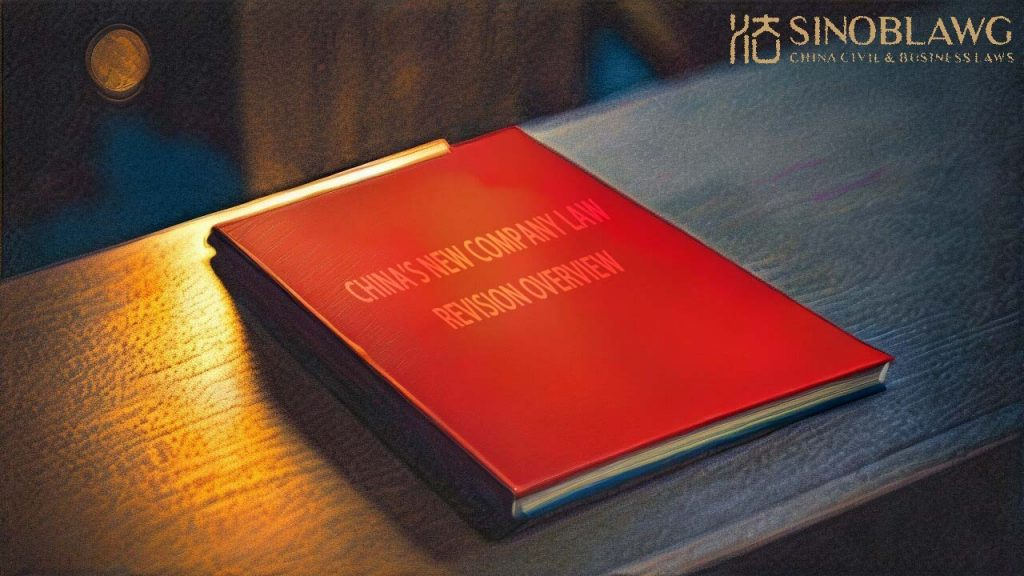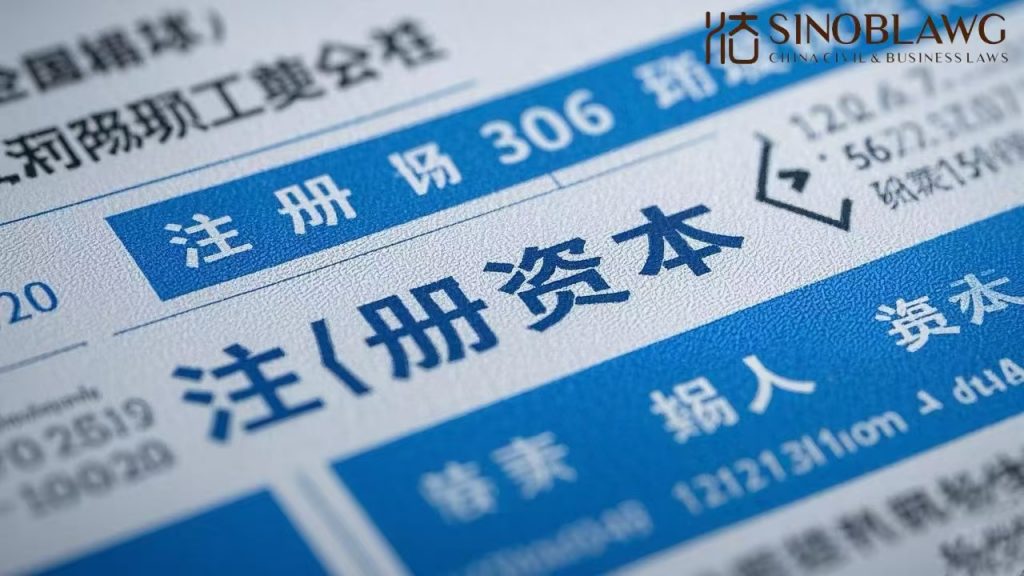China has overhauled its company law in 2023, and the new law has just taken effect on July 1, 2024. It is worth of a thorough look at what are the major changes, and their possible implications on family and estate law practices.
I Reforms on Capitalization of Limited Liability Companies
In relation to corporate capitalization, there are several noteworthy changes.
- Mandatory Five Years of Capital Contribution
Back in 2014, when China wished to boost national investments at home, it relaxed the stringent rules on corporate capitalization, giving corporate shareholders abundant freedom in contributing their subscribed registered capital of the company. In particular, the old law allowed shareholders to not specify a clear deadline for contributing their shares of registered capital in full. In other words, it meant shareholders can basically run their companies on debts only from day one.
The over-lax rules have apparently run afoul of social justice in practice where shareholders often escape their liabilities in regard of their basic obligation to contribute subscribed capital to their companies.
In response to the injustice old rules have brought about, new law makes a nice turn: shareholders now must contribute all subscribed registered capital of their companies within FIVE years from the date of incorporation of the company.
It shall be noted that foreign shareholders investing in Chinese companies shall follow the same rules.
2. Deprivation of Shareholdership for Failure to Contribute Registered Capital
As an enforcing method for the new capital contribution rule, the new law makes it clear in its Article 52 that: (1) where a shareholder fails to contribute his capital on time as stipulated in the company’s articles of association, and (2) the company has served a written notice reminding him of his obligation of capital contribution within a prescribed grace period (not less than 60 days), and he still fails to contribute his due share of capital, then the board of directors of this company may send a written notice of forfeiture legally depriving the shareholder of his share commensurate with his unpaid capital.
As you may notice it above, before depriving a shareholder of his share for not paying his subscribed capital before due date, the company shall have to give at least 60 days of grace period to the defaulting shareholder before exercising the power to effect forfeiture of the shares on the part of the shareholder.
In the same Article 52, it is further provided that the share so forfeited shall be either transferred to others or be cancelled by way of capital reduction, within 6 months of effective forfeiture; otherwise, the other incumbent shareholders shall proportionately pay up the corresponding capital in question.
3. Acceleration of Capital Contribution
The concept of acceleration of capital contribution by shareholders is not new. Ever since the amendment of China Company Law in 2014 introducing the liberal rule of capital contribution without a specific deadline, there have been many cases in which the companies are found to be inadequately capitalized, thus unable to repay debuts to their creditors, but in the meantime, their shareholders still have not paid up their subscribed capital, some courts have ventured to order the shareholders to pay up their subscribed capital before that payment obligation becomes due, thus so called “acceleration of capital contribution”.
But later on, China Supreme Court dealt a blow to that positive and just development citing the legitimate time interests that shareholders shall enjoy under the old liberal rules, which had gone too far in favoring shareholders over coroporate creditors.
Now in Article 54 of this new China Company Law, it is provided that the company and its creditors have the right to request the company’s shareholders to accelerate its obligation to pay up his subscribed capital contribution in the event that the company is unable to pay off its due debts, a clear signal that the law has rectified the imbalance that was skewed under the old rules in terms of protecting corporate creditors.
II. Share Classes and Issuance of Joint Stock Corporation/Company
For the first time, China Company Law incorporates the regime of different share classes in a joint stock company, which is widely used many other foreign jurisdictions.
Article 144 of this amended China company law provides that a joint stock company may, in accordance with its articles of association, issue the following types of shares that carry different rights as of ordinary shares:
- Preferred and subordinate shares in terms of distribution of corporate dividend and liquidation proceeds;
- Shares with special voting rights, more or less than ordinary shares;
- Transfer restricted shares, such as being subject to consent of the joint stock company; and
- Other types of shares specified by the State Council.
Such classification of shares and differentiation of share rights can offer enormous flexibility in structuring family businesses while helping high net worth individuals to do wealth and estate planning often comprising valuable corporate assets.
Another noticeable change in relation to joint stock company is the adoption of the so called capital authorization system where a joint stock company is authorized either by its articles of association or its shareholder meetings to issue new shares in the number of not more than 50% of the outstanding shares then existing. Such empowerment to the board of directors allows a joint stock company to be more astute in capital markets when it needs additional liquidity in its business operation.
III. Transfer of Shares/Equity Interests in Limited Liability Companies
The old rules surrounding the issue of transfer of equity interests/shares in limited liabilities companies have caused a lot of confusion for shareholders transferring their equity interests or share in limited liability commpanies.
1. the General Rules Governing Equity Transfer in LLC
The new law has much simplified and streamlined the procedures for transferring of shares in limited liability companies. Article 84 of the new China Company Law provides:
(1) existing shareholders of a limited liability company can transfer shares in whole or in part between them without any restrictions; this rule has remained the same for decades;
(2) where a shareholder wishes to transfer his share to outsiders (a buyer who is not an existing shareholder), he shall notify in writing other shareholders of the size of shares, price, payment terms etc. of the contemplated equity transfer, and those other shareholders have the right of first refusal to purchase the same shares purpurted to be sold;
(3) those other shareholders shall respond within 30 days of receipt of the written notification, failing which right of first refusal is deemed to be forfeited.
The law mandates the articles of association of a company to provide otherwise for equity transfers.
2. Special Rules for Transfer of Sharehoding Whose Corresponding Capital Not Paid Up yet
In corporate practice, very often a shareholder needs or wants to sell his shareholding a limited liability company before he pays up his share of subscribed registered capital of the company, in this case, after transfer of the share, who will be liable for forking out money to make up for the unpaid capital?
Article 88 of the new China Company Law gives the answer in two different scenarios:
(1) if at the time of share transfer, the obligation of capital contribution has not yet expired, then the buyer of the share shall assume the liability to contribute the capital to the company; however, if the buyer fails to contribute the due capital on time, then the seller or the transferor can also be ordered to make up the unpaid but due capital;
(2) where a shareholder transfers or sells his share whose corresponding capital contribution has already been overdue but unpaid, or the capital contributed in kind is notably lower than the subscribed amount of capital, the transferor and transferee shall bear the joint and several liability to the extent of deficiency because of failure to pay the due amount.
These rules surely clarify and dispel the myth and confusion surrounding such transfers of shares in limited liability companies.
IV Transformation of Corporate Governance
There are several noteworthy changes in relation to corporate governance of companies/corporations under the new China Company Law.
1. Compulsory Quorum for Valid LLC Shareholder Meeting Resolution
Old China Company Law didn’t provide for a quorum for LLC shareholders meetings to deliver a valid resolution. Now Article 66 of the new law requires that only when shareholders voting for a resolution represent more than half of all voting power shall a resolution be considered as valid.
2.








Comments